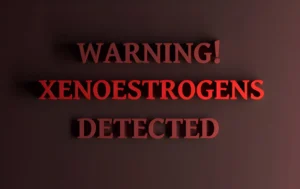Traditional depression treatments leave millions of people struggling without relief. When standard medications fail and therapy sessions don’t create lasting change, patients often feel trapped in cycles of hopelessness. The medical community has recognized this crisis and responded with groundbreaking innovations.
From precision brain stimulation to AI-powered digital therapeutics, revolutionary approaches are transforming how we understand and treat depression. These evidence-based strategies offer new hope for those who’ve exhausted conventional options and deserve comprehensive, personalized care that actually works.
1. Precision Brain Stimulation Therapies: The Gold Standard for Treatment-Resistant Cases
With traditional medication approaches succeeding in only one-third of patients, the medical community has turned to advanced neurostimulation technologies that directly target the brain circuits involved in depression. Modern healthcare providers are now prioritizing precision and personalized Major Depressive Disorder treatment strategies that focus on individual patient needs. By combining innovative technology with proven therapeutic principles, these comprehensive approaches are achieving better outcomes than ever before.
Advanced TMS Protocols
Transcranial Magnetic Stimulation represents a breakthrough in non-invasive brain stimulation. The SAINT protocol achieves a remarkable 85.7% response rate by using fMRI guidance to precisely target affected brain regions. This personalized approach eliminates the guesswork of traditional coil placement methods.
Accelerated protocols compress treatment timelines from weeks to days. Patients receive multiple sessions daily rather than spreading treatment over months, making it easier to complete full courses while maintaining effectiveness.
Deep Brain Stimulation for Severe Cases
For the most challenging cases, Deep Brain Stimulation offers hope when other treatments fail. Recent FDA approvals have expanded access to this powerful intervention for carefully selected patients with treatment-resistant depression.
Clinical trials demonstrate sustained improvement in patients who previously showed no response to medications or therapy. The precision targeting of specific brain circuits represents a major advance in understanding depression’s neurological basis.
Emerging Stimulation Technologies
Transcutaneous vagus nerve stimulation and trigeminal nerve stimulation offer less invasive alternatives with promising early results. Closed-loop neurofeedback systems provide real-time brain monitoring to optimize treatment parameters automatically.
2. Pharmacogenomic-Guided Medication Management: Ending the Trial-and-Error Approach
While brain stimulation therapies offer remarkable results for treatment-resistant cases, genetic testing reveals why certain antidepressants work for some patients but not others, revolutionizing medication selection.
SSRIs and SNRIs are the first-line treatments for MDD in the clinic; however, a sizable portion of MDD patients do not respond well to the currently available antidepressants. According to research on real-world sequential therapies, even after numerous treatment attempts.
Genetic Testing for Antidepressant Selection
CYP450 testing reveals how quickly patients metabolize specific medications, preventing ineffective dosing or dangerous accumulations. Serotonin transporter gene variations help predict which medication classes will work best for individual patients.
Novel Medication Classes Beyond SSRIs
NMDA receptor antagonists like esketamine offer rapid relief for severely depressed patients. Orexin receptor modulators address both depression and common sleep disturbances simultaneously.
Psychedelic-assisted therapies with psilocybin and MDMA are advancing through clinical trials, showing unprecedented success rates for treatment-resistant cases when combined with structured psychotherapy sessions.
Precision Dosing and Combination Strategies
Therapeutic drug monitoring ensures patients achieve optimal medication levels without experiencing unnecessary side effects. Genetic insights guide augmentation protocols with proven efficacy.
3. Integrated Psychotherapy Approaches: Beyond Traditional Talk Therapy
Modern psychotherapy has evolved far beyond traditional talk therapy, incorporating cutting-edge technologies and evidence-based protocols that address depression’s complex nature.
Evidence-Based Combination Protocols
Cognitive Behavioral Therapy combined with Behavioral Activation creates powerful synergies for symptom improvement. Acceptance and Commitment Therapy helps treatment-resistant patients develop new relationships with difficult thoughts and emotions.
Dialectical Behavior Therapy skills training provides concrete tools for emotional regulation that patients can use immediately when depression symptoms intensify.
Technology-Enhanced Therapy Delivery
Virtual reality-assisted exposure therapy helps patients with depression and comorbid anxiety disorders. AI-powered cognitive behavioral interventions provide 24/7 support between therapy sessions.
FDA-approved digital therapeutic platforms integrate seamlessly with traditional therapy, extending treatment benefits beyond scheduled appointments.
Trauma-Informed Depression Treatment
EMDR addresses underlying trauma that often contributes to persistent depression. Somatic experiencing approaches help patients process stored trauma through body-based interventions.
Internal Family Systems therapy helps patients understand and heal different aspects of themselves that contribute to depressive patterns.
4. Digital Mental Health Solutions: The Future of Accessible Care
Digital innovation is making evidence-based depression therapy options more accessible than ever before, reaching patients who previously couldn’t access specialized care.
FDA-Approved Digital Therapeutics
Prescription digital therapeutics provide structured, clinically validated interventions through smartphone apps and web platforms. These evidence-based tools complement traditional care while offering unprecedented accessibility. Integration with existing healthcare systems ensures continuity between digital and in-person treatment components.
AI-Powered Monitoring and Intervention
Predictive analytics identify early warning signs of relapse before patients recognize them. Real-time mood tracking triggers interventions when symptoms begin escalating. Chatbot therapy supplements provide immediate support during crisis moments when human therapists aren’t available.
Telehealth Optimization Strategies
Hybrid care models combine in-person sessions with virtual follow-ups for optimal flexibility. Remote monitoring tracks treatment adherence and response patterns continuously. Digital biomarkers predict treatment responses before patients complete full medication trials.
5. Lifestyle Medicine Integration: Evidence-Based Holistic Approaches
Evidence-based lifestyle interventions prove as powerful as many pharmaceutical treatments in both preventing and treating depression, addressing the biological foundations of mental health.
Precision Nutrition for Mental Health
Anti-inflammatory diet protocols specifically target depression-related inflammation. Microbiome testing reveals gut health imbalances that contribute to mood disorders.
Targeted supplement protocols address nutritional deficiencies that worsen depression symptoms, creating optimal conditions for recovery.
Exercise Prescription Protocols
Structured exercise therapy with specific intensity guidelines matches cardiovascular benefits with mood improvements. Yoga therapy certifications ensure qualified instruction for therapeutic applications.
Nature therapy and forest bathing interventions reduce stress hormones while improving overall well-being through environmental connection.
Sleep Optimization Programs
Cognitive Behavioral Therapy for Insomnia addresses sleep disturbances that worsen depression. Light therapy protocols extend beyond seasonal depression to address circadian rhythm disruptions.
Sleep tracking technology monitors treatment progress and identifies patterns that affect mood stability.
6. Innovative Combination Treatment Models: Maximizing Synergistic Effects
The most groundbreaking outcomes emerge when multiple evidence-based approaches work in synergy, creating managing major depression that surpasses individual interventions.
Multimodal Treatment Protocols
Simultaneous TMS and psychotherapy delivery maximizes neuroplasticity during therapy sessions. Medication combined with digital therapeutics provides continuous support between appointments.
Group therapy enhanced with biofeedback technology helps patients learn emotional regulation skills together.
Intensive Outpatient Programs 2.0
Technology-integrated intensive programs provide structured daily support without hospitalization. Peer support platforms with professional oversight create community connections that reduce isolation.
Family therapy integration in digital formats includes loved ones in recovery without geographical limitations.
Personalized Treatment Algorithms
Machine learning approaches analyze patient data to recommend optimal treatment combinations. Biomarker-guided decisions reduce guesswork in treatment selection.
Real-time treatment adaptation based on response data ensures patients receive the most effective mental health approaches for depression as their needs evolve.
Moving Forward with Hope and Evidence
These six approaches represent the most promising advances in depression treatment available today. From precision brain stimulation achieving 85% response rates to AI-powered digital therapeutics providing 24/7 support, patients now have access to personalized, evidence-based options that address their unique needs.
The integration of genetic testing, advanced psychotherapy, lifestyle medicine, and combination protocols offers unprecedented hope for those who haven’t found relief through traditional methods. The future of depression treatment isn’t just brighter, it’s here now, waiting for those ready to explore beyond conventional limitations.
Your Most Important Questions About Modern Depression Treatment
Which method has been proven the most effective in treating major depression?
Combinations of medications, psychotherapy, and somatic therapies remain the most effective ways to manage resistant forms of depression.
Which therapeutic approaches work particularly well for depressive disorders?
Because cognitive therapy and behavioral therapy work well together to treat depression and anxiety disorders, the two are often combined in cognitive behavioral therapy (CBT).
How quickly can I expect results from these innovative treatments?
Results vary by treatment type, with some approaches like ketamine showing benefits within days while others require several weeks for full effect.
Also Read-How Modern Lifestyles Influence Spine Health








